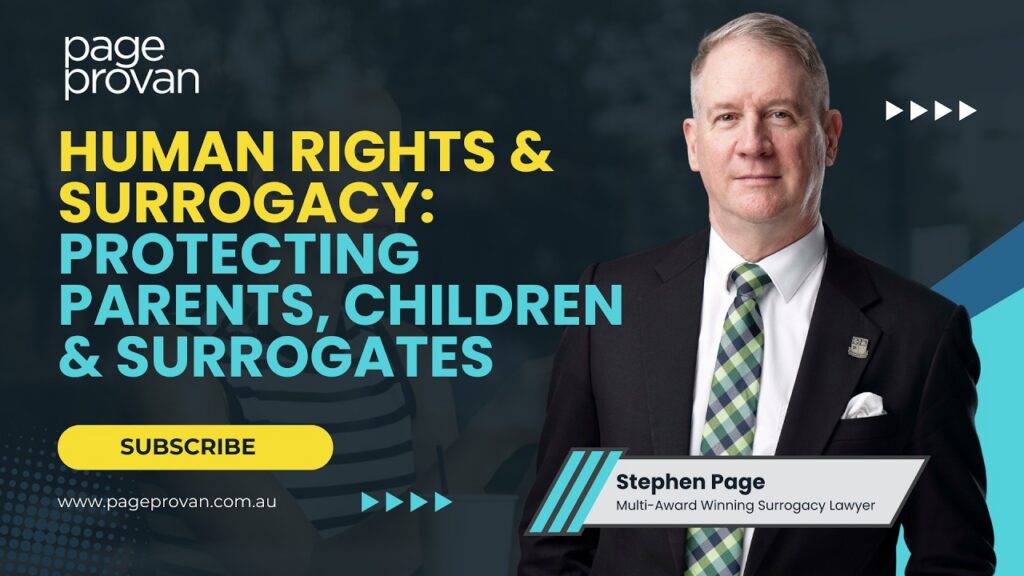The two ways to settle children’s disputes: Family Court case
There are essentially two ways to settle a family law dispute about children: one is a parenting plan – which is basically a written agreement about the children signed by each of the parents, and the other is obtaining consent orders from the Family or Federal Magistrates Courts (and sometimes the state magistrates or local courts).
Family lawyers like me always advocate that parties should sign up to consent orders, rather than a parenting plan, and the reason is obvious: if it’s breached there can be consequences, whereas if a parenting plan there are none, except for the vague threat of then going off to court.
But sometimes there can be an advantage in settling with a parenting plan. This can happen when the parents are into the court fight and they want to settle, but the independent children’s lawyer isn’t prepared to settle yet, for example because the independent children’s lawyer has some further inquiries to make. The parties then have two stark choices:
- keep battling it out in court until the independent children’s lawyer decides that he or she is ready to sign up to consent orders; or
- enter into a parenting plan, which does not have the same protections as orders, but when combined with discontinuing the court proceedings, means that the court case is over and the parents and their kids can get on with their lives.
This choice was obvious in Corbin and Corbin, a recent decision by Justice Murphy of the Family Court. The parties had just signed a parenting plan. They were in court for a scheduled date. The independent children’s lawyer was not prepared to sign up, as he wanted the mother and father to undertake a psychiatric assessment first. The parties just wanted out of court and sought leave to file notices of discontinuance. The independent children’s lawyer sought an injunction to prevent the parents from opting out.
This is what Justice Murphy said, in rejecting the application for the injunction:
Interestingly, the [Family Law] Act does not provide for the court to have
any form of supervening or other role, with respect to parenting plans.
Those plans are, as the statute contemplates, arrangements arrived at by the
parents themselves, albeit often with advice, from legal practitioners and,
sometimes, social scientists. Such is the case here.
The independent children’s lawyer, who is a creature of statue and derives his authority only by reason of an appointment made by this court, within the context of proceedings in this court, has different obligations; primarily, of course, obligations
directed towards the best interests of the child.
Accordingly, it is entirely appropriate that an independent children’s lawyer, charged with those statutory and other responsibilities, ought make submissions to a court that a parenting plan arrived at between parties is not considered by him to necessarily be in the best interests of the particular child or children. Again, such is the case here.
Here, the independent children’s lawyer seeks to keep the proceedings, “on foot” so as to “monitor” the parental arrangements.
However, despite those submissions, quite properly made, the legislation is framed in such a way that where parties arrive at their own arrangements via the entering into of a parenting plan, and, thereafter, decide to bring an end to proceedings in this court, the Court is, in my view, functus officio.
Although having the rights and obligations of a party, the independent children’s lawyer does not join issue with either parent in the seeking of parenting orders.
It is entirely open to one or other, or both of the parties, to file a notice of discontinuance in the registry of this court. In those circumstances, the proceedings would be brought to an end without further order. The Act does not provide for “sanction” or other “approval” or supervision of that plan.
Here, leave is sought to file notices of discontinuance in circumstances where the matter comes before me as part of this court’s Magellan directions list. Leave is sought because the filing of the document can be allowed by me, in the course of those proceedings, as distinct from being accepted by the registry staff, as it were, across the counter.
Accordingly, it seems to me that I should grant leave to both parties to
file a notice of discontinuance in respect of these proceedings, at which time,
these proceedings come to an end.
Disclosure: I appeared for the father.












